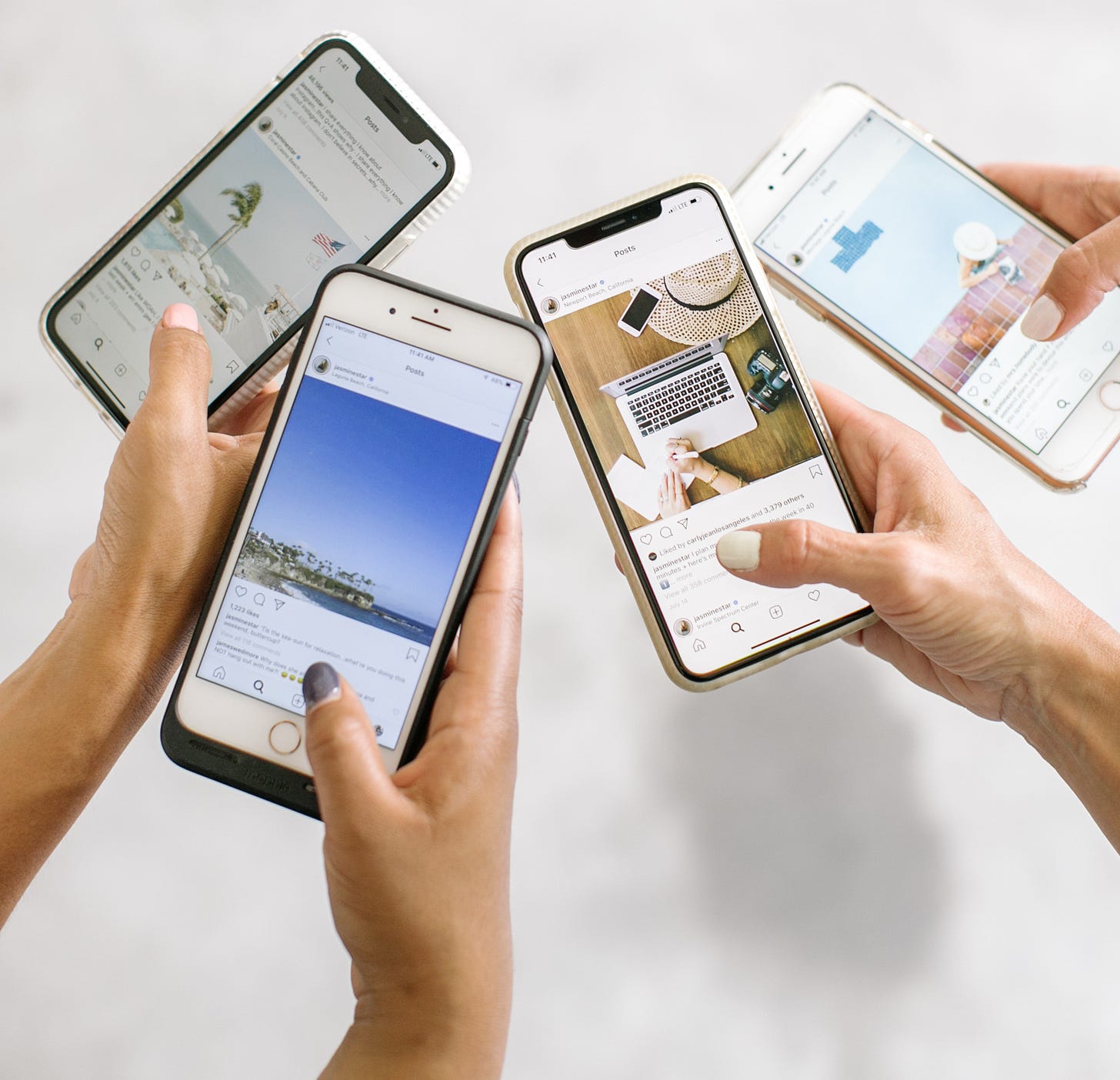How I Finally Became Consistent With My Writing In A Distracted World
Plus journalling prompts
➡️ Have a book idea but feel overwhelmed? Get my FREE writing guide 5 Steps To Unleash Your Inner Author. Get it here.
“Just write for 15 minutes a day.”
It’s what I tell some of my coaching clients, but truthfully, I hate this advice. Especially for writers who are also parenting. Because the reality is, when you finally get 15 minutes to yourself, you're more likely to crave a coffee, a sit down, and a scroll, rather than working on your novel.
Like many parents, my kids consume a huge part of my mental and emotional bandwidth. Add to that a recent move from Dubai to New York and I’ve been seeking those online dopamine hits for much longer than is healthy.
During Covid is another example. Then, we were living in Dubai. The kids were 6 and 4. I was homeschooling, trying to hold my business together, and stuck in a high-rise apartment with zero alone time.
I need a lot of alone time.
So I coped the way many did - by doomscrolling. But very little writing got done. My brain was at capacity.
Dr. Nerurkar, a lecturer at Harvard Medical School, calls it “popcorn brain”—a biological phenomenon caused by overstimulation online. When our brains are constantly ‘popping’, it becomes hard to engage with the real world, which moves at a much slower pace.
As life returned to normal, the need for distraction lessened. But even now, I can feel my attention span fading. I find myself:
Needing a book to grab me immediately or I will abandon it.
Getting restless during movies.
Unable to concentrate on writing for long periods of time.
That’s when I check my screen time, feel ashamed, delete the apps, hide my phone, set timers (which I always override), and then repeat the cycle. (Why is “Extend for 15 minutes” even an option?)
Of course, I know Silicon Valley is working very hard to keep me online. But at some point, I had to take back control.
And I’ve tried everything.
But the one thing that actually helped? Slowing down.
It sounds obvious. But it wasn’t until I became impatient waiting for the kettle to boil that I realized how fast I’d been living. How many productivity hacks I relied on. How addicted I’d become to short cuts.
So I made some changes - small ones at first - and slowly, my popcorn brain…well…stopped popping as much.
What Helped Me Stay Focused
I switched from typing to handwriting.
Not always, but often enough. Writing first drafts by hand felt surprisingly enjoyable. A blank page offers a kind of quiet possibility. Plus, handwriting activates different parts of the brain- it’s slower, yes, but also more connected.
I stopped multitasking.
I went for walks without podcasts. Ate meals without TV. Had conversations without mentally drafting my next response. Presence became a daily discipline.
I replaced Instagram with Pinterest.
If I needed a scroll-fix, I opened Pinterest and created visual inspiration boards. It still gave me that dopamine hit, but in a more creative way.
I called people instead of sending voice notes.
It can feel intrusive to call someone “just to chat” these days. But more often than not (if timed well), a quick check-in became a meaningful conversation.
I re-read Cal Newport.
Digital Minimalism and Slow Productivity gave me the academic permission I needed to step away. I also loved Stolen Focus by Johann Hari, How to Do Nothing by Jenny Odell, and The Success Myth by Emma Gannon.
I read slower-paced books.
As a hard-core psychological thriller lover, I challenged myself to read more literary fiction, memoir, and non-fiction. It forced me to slow down and read more deeply.
I followed the “Create Before You Consume” philosophy.
Marie Forleo made this phrase popular, and it’s something I do as much as I can. (Hence why I’m writing this at 5 a.m.)
I reassessed time-saving habits.
For example, online grocery shopping is convenient but to hit the minimum spend, I was over-ordering, which led to waste. Now I do a monthly big shop online and buy perishables in person at the farmers market or Trader Joe’s.
Of course, I still fall back into old habits sometimes. But overall, I’m seeing the benefits: my screen time has dropped, my thoughts feel clearer, and - most importantly - I’m writing (relatively) consistently again.
I hadn’t realized just how valuable thinking time really is. And how rare it’s become in a world that profits off our distraction.
Journal Prompts for Slowing Down
What’s one area of your life where you’re rushing? What would it look like to slow it down?
When was the last time you felt fully focused on a task? What allowed that to happen?
What are your screen time triggers? How can you interrupt the cycle?
What distractions are stealing time from your creative life?
What kind of rest actually replenishes you?
❓ What’s one thing that helps you stay focused or protect your attention?
Hit reply or share it in the comments - I read every one.







